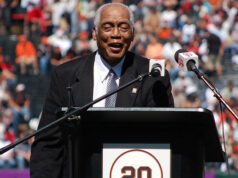
A “shrink” can expand your athletic performance.
By Paul Schienberg, PhD
Look what you’ve done, Yankee fans.
According to a report in the New York Daily News, New York Yankee third baseman Alex Rodriquez said he was undergoing therapy with multiple therapists to deal with his personal demons.

Rodriquez made the admission after he and his wife, Cynthia, donated $200,000 to a mental health program at the Children’s Aid Society in Washington Heights.
“I don’t know where I’d be (without therapy),” Rodriguez told the television show “Extra” in a segment to air Wednesday night at 7 E.T.
“I think it’s a different life that I’ve discovered and I thank Cynthia for that because therapy is an incredible thing and you might get to know someone you didn’t even know was in there.
“Why let the train wreck come before you fix it?”
Rodriguez did not specify the reasons for his ongoing therapy, but characterized his sessions as a “maintenance thing.”
The admission is a rarity in the world of professional sports.
After struggling during his first season in New York, Rodriguez has rebounded in his second go-around. His two homers during the Yankees’ 12-3 win over the Tigers Tuesday gave him a major league best 16 home runs and 46 RBI’s.
“It’s helped in baseball, for one, in terms of my approach to everything,” Rodriguez told the Daily News. “I think it would be great if kids out there realize that it can be a great benefit.”
Rodriquez has previously admitted to a rocky relationship with his father, Victor, who abandoned him when he was just nine years old. Victor resurfaced when the younger Rodriguez reached the major leagues, but the two remain estranged.
“I know where he came from and I know where he came from and I know his background and seeing how successful he is as a man, as a husband, as a friend, it really hits home with me,” Rodriguez’s wife Cynthia told the show. “It’s because of therapeutic intervention that he’s been able to discover and flourish as a person.”













